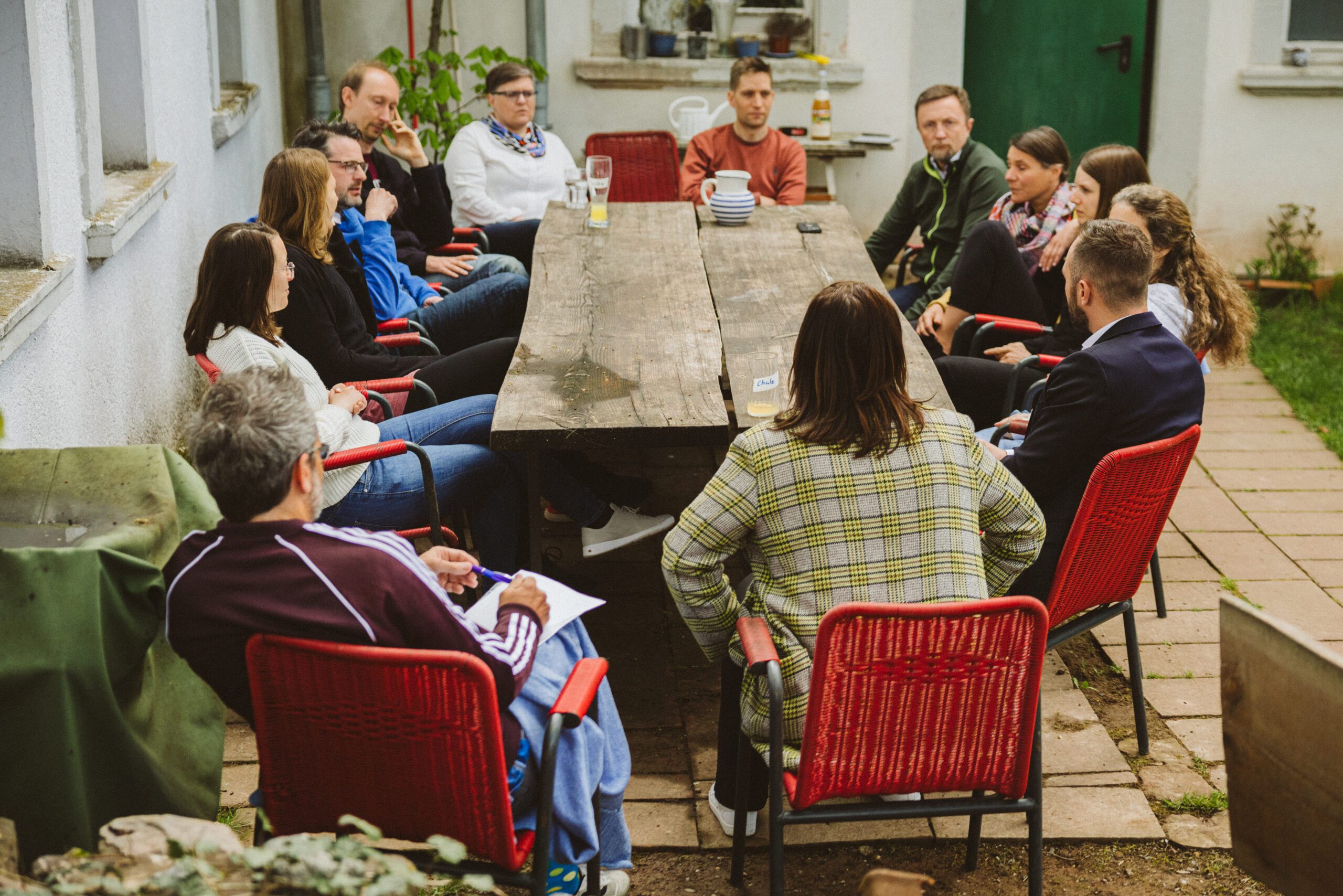Working with Groups
Group Coachings & Workshops
Stronger together – working in groups
Exchanging ideas in a group is often a key factor in achieving sustainable results. Group coaching offers the opportunity to share experiences and learn from each other. And the reassuring realisation that you are not alone with your questions and challenges, that others feel the same way, can be the decisive spark that reignites the motivation, the fun and the courage to keep going.

The important data
- My group programmes are usually for around six (group coaching) to 12 (workshop) participants.
They are suitable for mixed groups and can also be tailored to specific target groups (e.g. PhD students, postdocs, academics, etc.). - Topics include strategies for managing stress and emotions, working on mindset, beliefs and obstructive thought patterns, as well as strengths, goals, values, etc.
- All my sessions take place online, usually in ZOOM, so that no one has to travel.
- Of course I am happy to discuss how we can tailor the workshop or group coaching to the specific needs of your group!

Interaction and exchange as key elements
My workshops thrive on the interaction and exchange between participants. I attach great importance to creating a safe atmosphere in which each participant can open up as much as they wish.
Sharing emotions and often uncomfortable experiences requires a fundamental openness and trust in each other. Therefore, complete confidentiality and a willingness to engage in constructive, appreciative and encouraging dialogue are absolute prerequisites for participation.
Of course, all contributions and topics brought up by participants are completely voluntary!
What issues can we tackle together?
Coping with stress
Scientists solve complex problems and need to stay abreast of the latest research. This can lead to high levels of intellectual pressure and stress. In addition, emotional challenges such as setbacks or the pressure to produce innovative results can push them to their limits. Sharing experiences in a group and realising that you are not alone can go a long way to reducing stress. Strategies and methods for dealing with stress, stressful emotions and increasing resilience are also part of my workshops.
Motivation
Whether someone is motivated and stays motivated depends crucially on the feelings associated with the work or task. For example, whether criticism and setbacks spur you on or paralyse you, whether competition motivates you to do your best or intimidates you, knowing yourself and your own emotional reactions and using them productively is essential to a successful academic career. What motivates you and when you feel resistance can vary from person to person. However, knowing your own reactions is an important means of managing your own motivation and successfully completing tasks, dissertations or projects.
Procrastination
Chronic procrastination can be a particular obstacle for scientists, who often face heavy workloads and deadlines. Constant procrastination can not only hinder progress, but also affect self-confidence and productivity. In my workshops, I work with participants to identify the emotional causes of procrastination and develop coping strategies. These include techniques for self-reflection, dealing with uncomfortable feelings such as guilt, shame and fear of failure, and promoting a more positive self-image, which also boosts motivation and self-confidence.
Chronic feelings of guilt and shame
Constant feelings of guilt and shame can also interfere with academic work. They lead to self-doubt and feelings of inadequacy. In my workshops, I help participants to deal with these feelings constructively by teaching them to treat themselves with compassion and to set realistic expectations for themselves. Through mindfulness exercises and cognitive restructuring techniques, they can learn to increase their self-esteem and free themselves from excessive self-criticism and self-blame.
Perfectionism
Perfectionism can also lead to excessive pressure and fear of failure. In my workshops, I encourage participants to reflect on their high standards and recognise that perfection is not achievable. By promoting a healthy approach to mistakes and emphasising the learning process, they can learn to accept themselves and evaluate their work realistically.
Impostor feelings
Impostor feelings, i.e. the feeling of being a fraud and not really competent, are particularly common in the scientific community, where the pressure to succeed is high. In my workshops, I help participants to recognise these feelings and understand that they are not alone. By sharing experiences and emphasising successes and strengths, they can boost their self-confidence and learn to see themselves as competent and valuable members of the community.
Need more information about my group offers?
Let’s talk!
Would you like to book a workshop or group coaching for your doctoral researchers, colleagues or employees? Would you like to know which topics we can work on in a group? Do you have a specific idea of what such a workshop should look like for your group and would like to know if and how we can make it happen?
Get in touch and let’s discuss how we can create a tailor-made offer for your group.

Erfolgscoaching für Wissenschaftler:Innen
Rechtliches
Impressum
Datenschutzerklärung
Über Dr. Julia Schmidt
